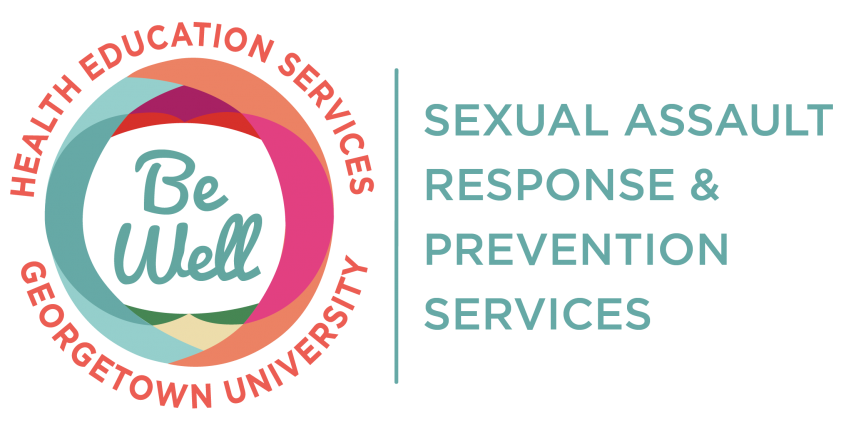Georgetown University recently hired a new director in its health education services office, following an almost eight-month vacancy and calls from students to increase diversity within the office.
The university hired Val Tovar as the new associate director of sexual assault response and prevention for diversity and inclusion in February, according to a March 5 email to the university community. Tovar previously served as a sexual assault prevention coordinator at American University.

Students with marginalized identities experience specific barriers to success on campus, according to Tovar, who plans to bring new strategies to Georgetown in order to become a resource for all students.
“I have professional experience, and I am a woman of color who has maneuvered in these spaces for many years, however I know students are the experts when it comes to knowing their needs,” Tovar wrote in an email to The Hoya. “I want to be a vessel to listen and advocate for the resources and support in order to help create a community of care for all students.”
Tovar, who has also worked at the Rape, Abuse and Incest National Network, a nonprofit anti-sexual assault organization, and The Trevor Project, an organization focused on LGBTQ suicide prevention, has the experience necessary to meet the needs of the university’s HES, including supporting diverse groups of students, according to Title IX Coordinator and Director of Title IX Compliance Samantha Berner.
“Val comes to the institution with experience and a dedicated focus on diversity and inclusion, which further advances the efforts of the University to better meet the needs of all members of our community, including BIPOC and LGBTQ+ students,” Berner wrote in an email to The Hoya.
Last June, former Assistant Director of Sexual Assault Response and Prevention Jennifer Wiggins resigned from the position, prompting student advocacy for increased support from a more diverse student health staff. Wiggins was known for her significant work within the office, including supporting the Black survivor community despite limited resources.
To support diversity and inclusion, the most important part of the director’s job is supporting marginalized students and helping students who might feel they are not seen by the university, according to Tovar.
“My hope is to continue and grow the incredible work so many have done, keep advocating and creating systemic changes, and to celebrate when we make strides,” Tovar wrote.
The university needs to take more steps than just Tovar’s appointment to make up for Wiggins’ departure, including hiring additional staff to alleviate the director’s workload, according to Katarina Watson (COL ’21), co-organizing director of H*yas for Choice, a pro-abortion rights student group.
“I would argue that many more people than Val Tovar should be replacing her position because Jen did so much and essentially held up the Black survivor community,” Watson said in a Zoom interview with The Hoya.
In February 2020, the Black Survivors Coalition, a student group advocating for Black women and nonbinary survivors on campus, launched the #GeorgetownDoesntCare campaign to protest the university’s failure to support survivors of sexual assault. In response to a series of sit-ins outside the office of University President John J. DeGioia (CAS ’79, GRD ’95), the university contracted with 14 BIPOC temporary health counselors, but students have continued to push for permanent appointments.
The university also changed its Title IX policies according to changes by the Department of Education in May 2020, which included greater protections for students accused of sexual assault. Since the inauguration, however, the Biden administration has already begun to reverse some of the Trump administration’s guidelines.
Despite the revised policies implemented due to the Trump administration’s changes, the university is still working to hold perpetrators accountable, raise awareness and encourage reporting of sexual assault, according to Berner.
“Where the new regulations allow the University to exercise discretion in adopting policy and procedural changes, we plan to seek longer term, broad input from the community,” Berner wrote. “We will continue to focus on education and prevention, support for individuals impacted, and prompt and equitable processes to respond to reports and complaints of sexual misconduct.”
After the proposed changes to Title IX legislation were released in November 2018, the university sought community input through town halls and feedback sessions in which many students voiced their concerns about the new regulations. Student concerns included a tighter definition of sexual assault that would make it difficult for survivors to provide proof of assault and the proposed allowance for cross-examination of the survivor by the accused student’s adviser. Following student input, the university submitted a formal comment to the Department of Education expressing disapproval of the relaxed policies. When the policies went into effect over the summer, administrators facilitated community feedback and promised to make minimal changes to policy, aware of community displeasure.
Because of the many recent changes in Title IX policy and developments in student advocacy over the past year, Tovar will have to work to support students in a new environment, Watson said.
“Everything’s different, so Val will just have to reach as many students as possible, be a support system and think of more peer programming,” Watson said. “Val obviously still has the capacity to support the Black community, but it is going to look a little different. So just connecting to students, being there for them and listening to what they need during this time.”
However, with her past experience and dedication to supporting Georgetown’s marginalized communities, Tovar will be successful as long as she works to advocate for all students, according to Watson.
“She shouldn’t feel as if she’s in Jen’s shadow in any way, because that’s more detrimental than anything else,” Watson said. “I think if she genuinely cares about these issues and about students, the rest will follow along naturally.”
This article was updated to clarify the director position is in health education services.




















